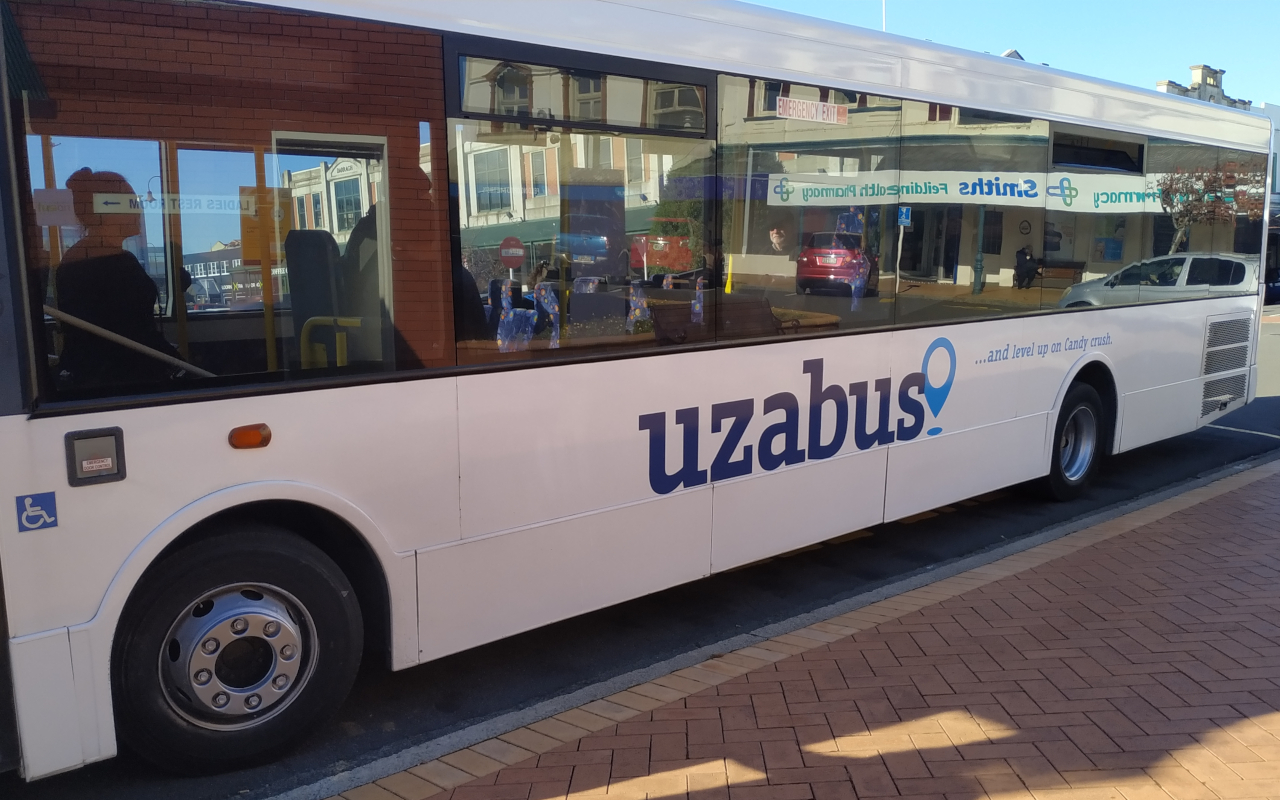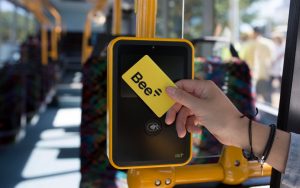
A new electronic bus card that will make bus travel more efficient and be able to be used across nine regions, is being rolled out in Manawatū after considerable delays.
The Bee Card is part of the Regional Integrated Ticketing System, a new bus ticketing system, that a consortium of nine regional councils has been working on since 2013.
The card, which launches in Manawatū next month, will enable passengers to pay for bus fares in the nine regions across New Zealand.

Horizons Regional Council launched the tap-on, tap-off system, similar to Auckland's Hop card or Wellington's Snapper card, in Whanganui in December, but a proposed rollout to Palmerston North and the wider region was been halted by data collection problems and the coronavirus (COVID-19) pandemic.
But it's now time for passengers in the Palmerston North, Manawatū, Rangitīkei and Horowhenua districts to get on board, Council transport manager Rhona Hewitt said.
"The Bee Card will be used to pay for bus fares from July 20, however, we are encouraging users to get themselves organised now while fares are still free so they are all ready to go," said Hewitt.
"The Bee Card replaces the Horizons GoCard and saves users money as the rate is cheaper than cash fares."
Bus travel has been free in the region since March 24, as COVID-19 public health measures ordered no contact with drivers. The easing of restrictions, however, has now given drivers a key part in the rollout.
Drivers are currently distributing free cards and information pamphlets to passengers, educating them on the new ticketing system.
Cards are also available at beecard.co.nz or by calling Horizons on 0508800800 and can be topped up at all those places, as well as on-board with exact change, said Hewitt.
"We're also asking people to register their cards online so it keeps their card balance secure and helps with COVID-19 tracing," she said.
Hewitt said while fares resume from July 20, they will be simplified to help riders adjust to the new system and paying again post COVID-19.
"All users in the region will pay a simplified fare to ride and Council will reassess when normal fares will resume at a later date. The simplified fares mean concessions are not needed for this period."
The simplified flat-fare structure means all riders will pay a normal school-age child fare, until September at least.
"SuperGold card users and university students are asked to continue to use their IDs as payment for their rides until normal fares resume, at which point they will also use the Bee Card. However, in the meantime, they are welcome to get a card and register it online so they are ready to use it later in the year," said Hewitt.
Adult rides in Palmerston North and Feilding usually cost $2.50 but dropped to $2 for those using the GoCard. Flat fares will see those rides drop to $1.50 with cash and $1.20 with a Bee Card, which will also apply in Whanganui due to the way fares are loaded into the ticketing system.
Trips between Feilding and Bunnythorpe and Palmerston North and Bunnythorpe will cost $2, or $1.50 with a Bee Card, while trips between Feilding and the city will cost $3.50, or $2.50 with a Bee Card.
The GoCard is only used to pay when boarding, but the Bee Card's tap-on, tap-off system would show exactly where people got on and off.
That data would enable the council to better plan its routes and timetables, chair Rachel Keedwell said.
"The Bee Card's tap-on, tap-off functionality provides us with rich data such as passenger use and hot spots along the routes and fare collection, which will be highly beneficial in informing our future network planning," said Keedwell.
"We've started collecting this data from Whanganui already and it will be fantastic to collect it for the rest of the region as well to help inform our future network planning. The Whanganui rollout provided the opportunity to iron out a few details and the feedback regarding how easy the card is to use has been positive."
Keedwell said the Bee Card has several modern features that will make using it beneficial to individuals and families, including checking balances online and registering cards to protect loaded credit if a card gets lost or stolen.
Managing multiple cards would also be simple for families, she said.
"This [feature] is really handy for families as they can load concessions based on the user, for example, children and also set up an automatic top-up to ensure they always have sufficient funds to travel."
A second phase of the rollout is set to begin in September when concessions will be loaded onto cards and top-ups will be able to be made at selected retailers and information centres in Palmerston North, Whanganui and Feilding.
Being able to top-up cards online or at agents, will speed up boarding buses by removing interactions with the driver. Previously, the GoCard could only be topped up by paying cash to the driver, or by EFTPOS at bus operators' offices in Palmerston North.
Other regions are also currently rolling out the Bee Card, including Waikato and Bay of Plenty. The system is already active in Northland and Invercargill.
Passengers have until September 30 to arrange for existing GoCard balances to be transferred to their registered Bee Card. They can contact Horizons for advice.


Be the first to comment